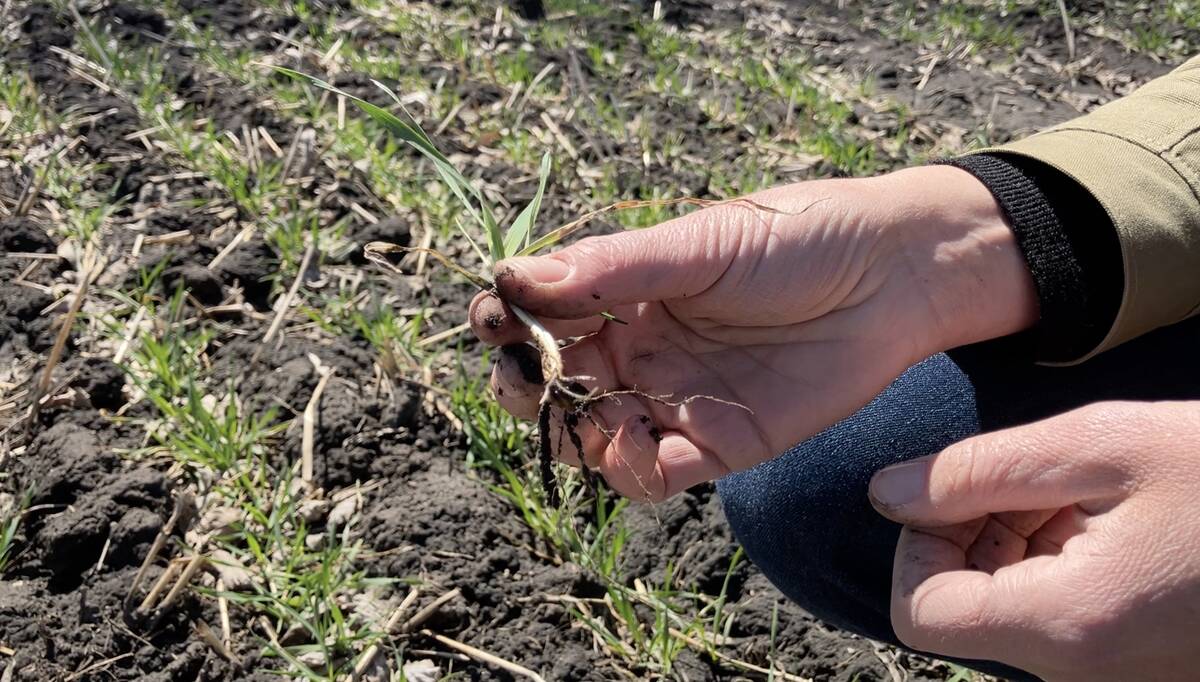The wait for remote broadband connectivity just got longer.
A deal between the rural-focused internet provider Xplore and Manitoba Hydro to use the Crown corporation’s surplus fibre-optic cables recently ground to a halt. Xplore had planned to use them to bring broadband internet services to remote rural and northern communities, but it is now complaining that it was being overcharged.
The issue came to light during question period at the Manitoba Legislature April 27, when NDP leader Wab Kinew read from a leaked internal email from Hydro that indicated progress had stopped.
Read Also

Manitoba farmers wary of research hit after AAFC cuts
Agriculture and Agri-Food Canada cuts claim Portage la Prairie research farm; Manitoba farms groups wrestle with potential impact.
The email, dated April 23, said the project was put on hold in mid-February and “remains on hold at the request of Xplore.”
Why it matters: Broadband connectivity is largely unavailable in rural Manitoba, especially at the farm level.
The email said Xplore was disputing the costs and that it had directed Manitoba Hydro to cease fibre work until the dispute was resolved.
“[Manitoba Hydro] is actively working to resolve this dispute; however, at this time, it’s unknown when a resolution will be reached or when the project will resume,” read the email.
At the time the project was shut down in mid-February, the email indicated only about 20 per cent of the project had been completed.
Neither Manitoba Hydro nor Xplore responded to requests for comment on the dispute.
The government deal with Xplore was announced in May 2021, when Brian Pallister was premier. The aim was to provide broadband services to nearly 30 First Nations and approximately 270 rural and northern communities. The agreement also included a commitment to provide 350 communities with cell phone access.
The province owned thousands of kilometres of unused, surplus-capacity fibre-optic cable. The network had been created to communicate with northern hydroelectric facilities and transmit data. After a competitive process, Xplore was awarded the contract, and the surplus fibre-optic capacity was made available to the company to expand its broadband and cell phone services to remote communities.
In an NDP press release, the party blamed the PC government’s “privatization agenda” for shutting down the project.
“A private company has forced Hydro to cease work on the project, and staff have been redeployed as there is no timeline to resume work. This sets a dangerous precedent that puts our publicly owned assets at risk,” said Adrien Sala, NDP critic for Manitoba Hydro.
“We are seeing yet again why the PC government’s privatization agenda is bad for rural Manitobans.”
In an email, Consumer Protection and Government Services Minister James Teitsma said the government remains committed to connecting remote communities.
“Reliable connectivity is critically important for the safety, well-being and economic success of all Manitobans,” he said.
Tietsma also defended having a private company provide the service.
“To connect more Manitobans with faster internet and cell service, there is a role for the private sector as well as government,” he said. “We are taking action to close the telecommunications gap for rural, northern and Indigenous communities, including making surplus fibre-optic capacity through the Manitoba Hydro network available.”
According to Keystone Agricultural Producers president Jill Verwey, it’s critical that the parties resolve their differences and get work back on track.
“Access to reliable and affordable broadband is something that we have been advocating for all along,” said Verway. “Without affordable broadband service, farmers are definitely at a disadvantage.”
She didn’t want to weigh in on the dispute, but said she hopes for a speedy resolution.
“I think we’re a long way away from getting that equitable access right across Manitoba just because of the vast nature of the province, but hopefully that work will continue to move in the direction where all farmers will have access to broadband as well as cell phone service. Both are very important for farming operations.”
















